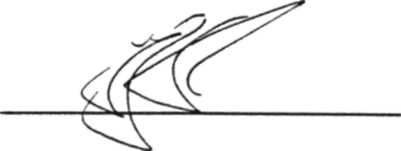

IN THE HIGH COURT OF NAMIBIA
In the matter between
HANS HEINRICH ROTHE versus ARNDT ASMUS CONSTANCE ASMUS
PLAINTIFF
FIRST DEFENDANT SECOND DEFENDANT
CORAM: FRANK, J.
Heard on: 1996.08.09 + 1996.09.23
Delivered on: 1996.12.02
JUDGMENT
FRANK, J. : Plaintiff in this matter alleges he is an ex-
partner of first respondent. He sues in this capacity.
Plaintiff states that he and first respondent operated a business in partnership in terms of a written agreement of partnership which he annexes to the summons. This partnership was dissolved orally between them during January, 1994. This oral dissolution agreement was acted upon and agreement was reached with regard to certain matters whereas no agreement could be reached in respect of certain others. The latter matters are set out in an annexure C to the Particulars of Claim. The plaintiff seeks an order in terms whereof the Court must adjudicate on the matters disagreed upon alternatively that the Court appoints a liquidator to do this and to render accounts in this regard.
Some of the matters disagreed upon relates to certain expenses allegedly wrongfully incurred to recompense second defendant for overtime and travelling expenses. Second defendant is the wife of first defendant. These alleged overpayments are claimed from second defendant. This claim against second defendant is in my view excipiable. No basis is laid for it. Plaintiff cannot claim it on behalf of the partnership as he is clearly not authorised to do so and neither can he claim it in his personal capacity as on his own allegations it is, at most, a partnership claim. Although Mr Vaatz for the plaintiff did not concede this claim was excipiable he also did not seriously contend that it was not. The exception taken against this claim is a good one and I will make the normal order in due course.
Exception was also taken to the claims against first defendant. What I set out above is a severely truncated version of plaintiff's claim in an effort to distill it to its essence. I do not intend to set it out in detail as it is in many respects vague and embarrassing. This much was conceded by Mr Vaatz. The defendant however chose to except on the ground that it did not disclose a cause of action and not to give plaintiff notice to cure the vague and embarrassing nature of the pleading. Because of this I have attempted to separate the wheat from the chaff and to ascertain, once this was done, whether there is any merit in the exception taken.
I do not find any problem with the principle underlying plaintiff's claim. A liquidator is not always appointed but the appointment of one is in the discretion of the Court. Where the dispute between the partners relates solely to a question of law I cannot see why a Court of law will not deal with it and not leave this to a liquidator who normally is a person with an accounting background. Plaintiff is not asking the Court to be the liquidator (which role it can also assume in its discretion depending on the nature and scope of the disputes) but is saying that the parties have agreed on certain matters with regard to the dissolution but were in disagreement with regard to certain others which dispute someone must determine. Whether the Court does it in its discretion or refers it to a liquidator is neither here nor there for the purposes of this exception as this relief is sought in the alternative. How the Court will exercise this discretion cannot be determined at the exception stage.
The first prayer relates to matters the parties allegedly agreed upon. In terms of this agreement each party took some of the property of the partnership at an agreed value which had to be paid into the partnership account. Plaintiff makes no allegation that defendant is actually in possession of the items listed and furthermore seeks interest at "prime bank rate" alternatively a "reasonable user fee or rental" for the period the defendant possessed these items. There is also no allegation that defendant has not paid into the partnership the agreed value of the items which amount is also claimed. As the prayers must follow
from the allegations in the summons one cannot assume the amount was not paid or that first defendant took possession of the items. Furthermore there must be a basis for the interest or user fees or rental. The Court cannot make an agreement for the parties. They either expressly or impliedly agreed on such terms and if not no interest, save mora interest, is claimable. Plaintiff must aver what he claims and on what basis. This relief sought is thus excipiable.
As far as the disputed items listed in annexure C to the summons are concerned I also have certain problems. (I do not deal with those items involving second defendant for the reasons set out above) . A certain amount is claimed as being "unexplained withdrawals". Here again, Plaintiff must claim this amount or abandon it. If he feels the partnership is entitled to it he must claim it and not leave it in limbo as if it still can be explained. A more problematical area relates to the question of trade discounts which first defendant allegedly received for his own business by virtue of ordering items through the partnership. Plaintiff alleges these discounts varied between 3 0 - 50% and should have been credited to the partnership if I understand the allegations correctly. Here, again, he must lay a basis for his claim in an agreement either expressly or orally and claim it if he is indeed the party who is claiming it and not disputing it.
There is another ground which makes the particulars of claim excipiable which ground was not taken by the excipient and although I am not going to decide the matter on this point
I deal with it briefly. The written agreement of
partnership makes provision for the dissolution of the partnership and the steps that must be taken in such an event. This written agreement contains a non-variation clause other than in writing. The oral dissolution agreement relied on by plaintiff is clearly in conflict with the written agreement. I mention this as even if the matter is not taken up now by defendants it may still be done in future to the detriment of plaintiff and his current claim. (Shifren & Others v S A Sentrale Ko-op Graanmaatskappy Bpk. 1964(2) SA 343 (0) and S A Sentrale Ko-op Graanmaatskappv Bpk v Shifren & Andere, 1964(4) SA 760 (A)).
In the result I make the following order:

T

he exception against the Particulars of Claim of first defendant is upheld with costs.The exception against the Particulars of Claim of second defendant is upheld with costs.
The plaintiff is granted 14 days from date of this order to file amended particulars of claim.
ON BEHALF OF THE PLAINTIFF: MR A VAATZ
Instructed by: A Vaatz
ON BEHALF OF FIRST & SECOND DEFENDANT: Instructed by:
ADV R T6TEMEYER Behrens & Pfeiffer